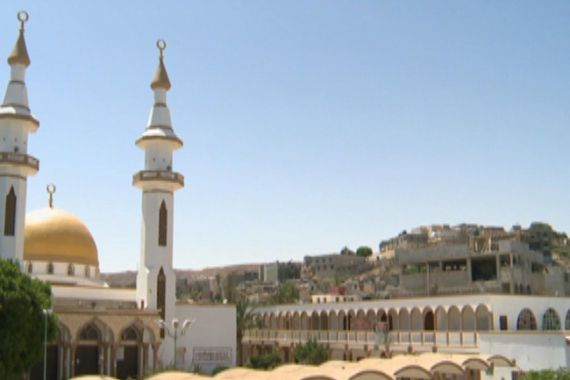Eastern Libyans declare autonomous government
Leaders of a movement for self-rule on oil-rich eastern Libya have announced a formation of shadow government.

The leaders of a movement for self-rule in oil-rich eastern Libyan have unilaterally announced the formation of a shadow
government, the latest challenge to the weakened central authority.
The announcement on Thursday came several months after the movement, backed by some militias and local tribes, declared the eastern half of Libya to be an autonomous state, named Barqa, claiming broad self-rule powers and control
over resources.
The central government in Tripoli had rejected the declaration. It had no immediate comments on Thursday.
Advocates of the self-rule in the east, who have long complained about discrimination by the government in the capital Tripoli, have been pushing for the reviving the system maintained under King Idris in 1951.
Libya then was divided into three states, with Cyrenaica, or Barqa, as it was called in Arabic, encompassing the eastern half of the country.
Opponents fear a declaration of autonomy could be the first step toward the outright division of the country, particularly with the turmoil that struck in the aftermath of the fall of longtime dictator Muammar Gaddafi.
The tension between the central government and eastern militias and tribal leaders has already disrupted the exports of oil.
Eastern militias earlier seized control of oil exporting terminals, sending production plunging from 1.4 million barrels a day to around 600,000, robbing the country of its main revenue source.
The aim of the regional government is to share resources in a better fashion, and to end the centralised system adopted by the authorities in Tripoli
Abd-Rabbo al-Barassi, the head of the newly declared Barqa government, said the aim is to improve distribution of resources and undermine the hold of the centralised system that has discriminated against their region.
“The aim of the regional government is to share resources in a better fashion, and to end the centralised system adopted by the authorities in Tripoli,” al-Barassi said at a news conference in the northeastern town of Ajdabiya.
He dismissed accusations that the movement’s leaders are only seeking to
take control of the region’s oil resources.
“We only want Barqa’s share according to the 1951 constitution,” he said.
The new government is made up of 24 posts, which don’t include the defence or foreign affairs portfolios, he said.
Al-Barassi said the region will encompass four provinces, including Benghazi, Tobruk, Ajdabiya and Jebel Akhdar.
Since Gaddafi’s ouster following months of civil war, Libya has been beset by lawlessness as the numerous armed men who fought against the longtime leader’s forces formed into independent militias now vying for power and
allying with competing politicians.
“The security file will be priority,” Al-Barassi said. “It is a thorny issue leading to the chaos of illegitimate militias.”
It is not clear how much support the new autonomous government will have in the country’s east, though the movement’s leaders have seized control of important resources.
Officials in the central government have threatened to use military action against any illegal or unauthorised shipment of oils.
Meanwhile, a Libyan court on Thursday referred Gaddafi’s son and more than 30 others to trial before a higher tribunal on charges ranging from murder to treason during the 2011 uprising, a senior prosecutor said.